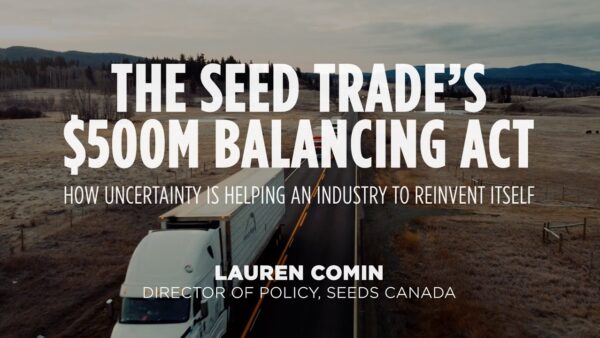Western Seed Association Executive Director Tina Bowling gives FIVE reasons why they ARE vital.

I’ve heard the question more times than I’d like recently: “Are regional seed associations still relevant?” We’re living in a time where technology globally connects us in the blink of an eye. It’s easy to overlook the crucial role our regional associations still play. However, for those of us deeply involved in the seed industry, I would say that these associations remain indispensable. Here are five reasons why.
1. Networking and Nurturing:
Regional seed associations provide a natural nexus for networking. There’s simply no substitute for meeting face-to-face with colleagues who understand the specific challenges and opportunities within your geographic region. These associations nurture relationships and allow for meaningful discussions that address local needs in ways that virtual connections just can’t match.
2. Building Bonds for Business:
Relationships are the foundation of future business, and regional seed associations create the perfect environment to build bonds that can blossom into business deals. Spending time collaborating on shared challenges or simply connecting in a more personal setting fosters trust — the bedrock of any successful partnership. These associations help you grow those relationships that could turn into major opportunities down the road.
3. Political Power:
Regional seed associations possess political prowess. They play a pivotal role in the political landscape of their area, which in turn has the potential to influence national policies and regulations. By staying involved at the regional level, these associations ensure that the concerns and needs of the seed industry are not only represented but prioritized by policymakers.
4. Collaborative Consensus:
When it comes to seed-related issues specific to a region, seed associations act as a collaborative consensus. Every region has its own unique challenges, whether it be climate, soil health, local regulations among other things. Regional associations provide a unified voice, advocating for solutions that address the specific needs of their members while also benefiting the broader seed industry.
5. Spotting Seed Sector Shifts:
Regional seed associations have a sharp eye for spotting shifts that affect both the economic and environmental aspects of the seed industry. They are often the first to notice trends or challenges unique to their geographical area. Whether it’s emerging agricultural practices or changes in consumer demand, these associations keep us ahead of the curve by identifying potential threats or opportunities before they become widespread. So, are regional seed associations still relevant? Without a doubt. They continue to be a cornerstone of the seed industry, providing essential support, advocacy, and connection within a geographically diverse field. In an industry as dynamic as ours, these associations are not just relevant — they’re irreplaceable. If you’re involved in your regional association, I’m happy to hear it. If you’re not, ask yourself why. Maybe it’s time to get involved and make a difference.













